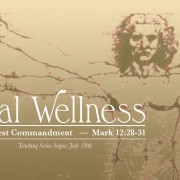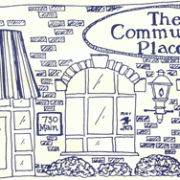Total Wellness #5 – With All Your Strength – Daniel Fusco – Calvary North Bay
/0 Comments/in Podcast/by danielfuscoSaturday Reflection – Alan Hirsch on Communitas
/3 Comments/in Bible, Call of God, Church Issues, Culture, Discipleship, Evangelism, Ministry, Pastoral Resources, Practice, Trends/by danielfuscoTying up some loose ends…
/5 Comments/in Uncategorized/by jeffjacksonTo get to know me is to realize that my computer/internet/social media savvy leaves a lot to be a desired. To put it bluntly, I’m a techno-lamer. In my next post I’ll be unveiling in depth two of the major reasons why I seem to be perpetually behind the curve when it comes to technology and social media. In a nutshell, it’s because of: 1. The way God wired me 2. My conviction regarding what He has revealed about His expectations for those He calls to be under-shepherds of His people in a local church.
Because I’m still feeling guilty about the great comments and questions my last post provoked and the fact that I haven’t had time to respond, I’d like to use this post to tie up those loose ends.
For Miles:
1. The essential components necessary that must become a reality for a group of believers to consider themselves a valid expression of a local body of Christ are:
A. They have a God-given desire to come together regularly as a group, (a micro-community), they eagerly refer to themselves, (self-identify or label), themselves a “church”, and they take the initiative to find a location for their coming together THEMSELVES.
B. They believe that their being together as this “micro-community” provides the best opportunity for their own growth in Christ and for them to be a part of the growth in Christ of other members of their “micro-community”. They’re convinced that a part of each member’s growth in Christ will be the discovery, use, and refining of the gifts God has given each member of their mirco-community for the good of their micro-community.
C. Each member of the micro-community is convinced that they individually and ESPECIALLY as a group, are a local expression of God’s kingdom and that their existence as group is also for the good of the larger local community where they live and meet AND that corporately and individually they have a significant role to play in God’s expansion of His kingdom in their community and around the world.
D. They are open to receiving helpful resources in various forms from other believers and local churches outside of themselves. BUT, they navigate life day to day believing that God has given them individually and as a micro-community everything necessary at that moment in time to be and do what God has called them to be and do in the lives of their own members, their local community and the world at large.
It’s fairly easy to see that these 4 components, these 4 convictions, can exist in any political or social environment–which is why local churches exist even in the most Christ-hostile places on earth.
Finally on this subject, I’m also in agreement with the traditional foreign missions church planting goal of producing 4 “self” based churches. That every church planted, in it’s day to day operation, should be: Self-governing, Self-supporting, Self-propagating, and Self-theologizing, (contextualizing the eternal truths of the kingdom for the good of the community they primarily exist within.)
2. Paul’s basic church planting method from Acts 20:18-35. (Actually, you’ll see that I’ve included not just method, but some specific practice and content too….typical pastor, I know.)
Vs. 18 1– He says he “came” to them–A church planter must “go” to the lost as the primary way of reaching people, not primarily setting up structures or events to draw people to where he is at.
2–He says he “lived among you”–A church planter must “live” among, in the midst, of those he is trying to reach. It’s not enough to just “go” and then bail. (“Living among” them would imply learning their language if it was different than your own.)
Vs. 19 3–He says He served the Lord with “humility”, “many tears,” and “trials”–A church planter must be humble enough to live transparently among those he’s reaching. He must be willing to not only “know God and make Him known”, he must also be willing to be “known” himself by those he is trying to reach. Letting the people we’re trying to reach see our struggles and our tears, yet staying put in their midst speaks volumes about our God and His worthiness for them to know.
Vs. 20 4–He kept back “nothing that was helpful”–A church planter uses his resources, both spiritual and tangible, to express the reality of God’s goodness and His kingdom to those he is trying to reach. If it can be helpful, it is to be used. In the teaching realm, this means teaching the hard things because they’re helpful for the people….not holding back because it might cause offense.
5–He taught them “publicly and house to house”–A church planter recognizes “public” teaching is only half of what people need. They need to have God’s word brought and taught right in their own homes by this person who clearly has the ability to teach publicly. How significant does it make them feel when this guy who can speak to dozens, hundreds, even thousands, actually comes right into their homes to teach only a few?
Vs. 21 6–He told them he recognized the different ethnic groups present in their community and the basics of his message–A church planter has to preach the basics, but packages the basics in culturally appropriate ways. (Acts 13…to Jews…He begins with Jesus as the messiah. In Acts 14 and 17, to Gentiles, he begins with the concept of “creator God”).
Vs. 21 7–He tells them “chains and tribulations await” him–A church planter MUST communicate the cost of following of Jesus and let the people see he is continually willing to pay the cost.
Vs. 27 8–He tells them he hasn’t “shunned to declare to you the whole counsel of God”–A church planter must give the people the whole counsel of God–an understanding of the flow of God’s word and the principles it contains, even the principles having to do with suffering or those which may cause offense.
Vs. 29,30 9–He informs them that a church is in a dangerous position, from within and without–A church planter must be realistic and prepare God’s people for the reality of spiritual warfare and the various ways the enemy will attack them personally AND as a group of believers.
Vs. 32–10–He “commends them to God and the Word of His grace”–A church planter never lets the church forget that ultimately they belong to God and His word of grace and it’s from Him that they will draw their body-life.
Vs. 33 11–He says that he has “shown them in every way”–A church planter knows he is setting precedents that will affect them the rest of their walks. He recognizes that like it or not, he is a role model in every area of his life.
For Tim:
First, I absolutely love how you describe the make-up of your body and even more, your EXCITEMENT and DESIRE to be a good steward of a multi-ethnic congregation He obviously feels your equipped to pastor. Your desire to have a greater cross-cultural impact is music to my ears. To have a greater impact cross-culturally, it’s always helpful to seek ways to unleash some of the existing cultural treasure and traits of your members that are from non-American cultural backrounds. Here are a few questions that might help you do this:
1. Of the distinct cultural groups that you already know about in your body, what category do they fall into: 1st generation 1 1/2 generation, 2nd generation, etc. ? (Generally speaking, if someone over the age of 25 came to you and before they spoke, you closed your eyes, would their accent give any indication that they were not a native English speaker? If they have almost no perceptible accent, (other than American accents like East coasters, southerners, and so forth,) then they are probably at least a 1 1/2 or 2nd or 3rd generationer).
If they are 2nd or 3rd generation, they might still have a few cultural traits from the old country that they practice when they are with their parents or older people from their ethnic back round, but generally speaking, they’re primarily living according to the prevailing American cultural norms.
It’s the 1st or 1 1/2 generation folks that are the people you should begin meeting with because they are still in the process of adding American cultural traits to their own cultural traits, (and abandoning some of their original cultural traits,) that they were immersed in before coming to America. These are some questions you could ask them:
A. What aspects of American culture have been the most difficult for them to adjust too?
B. What aspects of American culture do they still not understand?
C. If they were given the opportunity to have one hour to teach you and your leadership about their own culture, which cultural traits would they emphasize? Why would they emphasize those cultural traits?
D. Which of their cultural traits do they believe are a valid expression of the principles of the kingdom of God? They probably haven’t thought about this, but asking them about it will provoke them to do so and maybe cause them to praise God for what has been passed on to them.
E. This one will be tough for them to answer, but try it anyway: Which aspects of American culture do they believe are not really good expressions of kingdom principles?
F. What specific areas of the way we “do church” might be helpful to change in order to be more attractive to those from their cultural back round?
I can’t remember the author, but there is a crucial book for anyone who really wants to see how we’re understood by people from other cultures that have come to live among us. It’s a secular book….but a gold nugget, it’s called:
“Distant mirrors”
When I was on staff at a large church with people from more than 30 different countries, I challenged the pastor and worship leader to set apart about 15 minutes of the Sunday morning time of worship every 6 weeks or so, to have a specific ethnic group from the church do a worship song in their own language in front of the congregation. Those that did this, (Ethiopians, Kenyans, Filipinos,) were SO blessed that we would ask them to do this. We asked them to pick one of their own worship songs, (not just an American worship song translated into their language), and we putthe words into phonetic form to be projected so those from the congregation could sing along if they wanted to.
We plugged it from the pulpit the week before and we had them wear their native dress the morning they blessed the congregation with the song. This drew a lot of interest before the service started, and then after the pastor or worship explained to the congregation what was about to happen and why, they came up on stage and worshiped God in their own language–it was unbelievable! We had nothing but positive responses, and each ethnic group told me it was the first time in any church in America they had been in, that anyone seemed to care about the culture and language God had given them!
You might also consider creating a Rev. 5:9 committee made up of key leaders from the ethnic groups in your congregation. Get them together, along with you and some of your key staff and have them share their stories with the group. Then, have an interactive discussion with them as a group about some different ways your Sunday morning and other ministries of the church could be a bit more user friendly. Ask them to help give your church a foretaste of Rev. 5:9 right now.
Many churches have flags up in their sanctuary, but at my church here in Phoenix, we have only the flags of the countries that are either a part of our body, (Syria, Philippines, Burma,) or that represent the primary refugee groups that we reach out to, (Bhutan and Iraq.) Having art type stuff in the sanctuary or the foyer that represents the cultures of the people in your body demonstrates they matter and that you recognize their cultures have something to contribute to your church.
When I was at that large church, I taught a seminar called: Passport to Understanding American Culture. It was geared towards the non-Americans in the church. I did it in about and hour and a half and I had Koreans, Thais, Japanese, and people from various African countries that attended. In tears afterward, many of them told me that even though they had been in America for 20 years or more, (some of them,) until the seminar they didn’t really understand why Americans do what they do.
Finally, effective cross-cultural impact for a church really does hinge on the senior pastor. If you genuinely believe that the make-up of your body is by God’s design and each member of the body has an inventory given by God for the good of the body as a whole, then those cultures and languages are a part of their inventory and are there for the benefit of all. Proceed intentionally to understand them, acknowledge them, and be willing to learn from them. When I’m teaching through the Word, (I’m in Luke now), I not only explain the culture at the time of the text, if applicable, I point out that many of the people in our body are much closer culturally to what is going on with Jesus and the people He was ministering to then we Americans are. I emphasize that many kingdom cultural traits are already present in many of the other cultures God has brought to our church and we Americans, (the odd-balls on the planet), need to learn from them in some of these areas.
True cross-cultural impact will hinge on you…and it’s obvious you have the right heart and a willingness to learn how to do that. God will honor that and all of your congregation will benefit from it.
For Bill:
Honestly, I’m not sure. I think a church built to reach a specific sub-culture needs to be and will be very specific for the first few years of its life. But because all cultures and sub-cultures are in a state of change, eventually a broader spectrum of people will begin checking it out and for whatever reason, will find something there that is desireable to them.
Once there is “buy-in” and true community begins to take place, those from outside the sub-culture that have been attending will begin contributing to the culture of the church and those that were part of the original sub-culture will have come to know them and love them so much, that they will welcome the changes they bring because they know it will give them a better opportunity to express the awesome creativity of God.
In cross-cultural ministry, educated, bi-lingual people generally will not attend a church that only does things in their heart language and is a highly cultural expression of their first culture. They will go for an event, they will go to give of their resources and so forth, but they won’t choose to be a part of that body. But, the uneducated, limited in language other than their own people, WILL be open to attending a church that is in the other language and is different than their own culture. There are cultural reasons for this dynamic in shame/honor cultures.
Here’s what I p0nder in our American cultural context: Who is more likely to really want to be an integral part of a church that is radically different than themselves? The older, more traditional and typical American? Or, the younger, cutting edge American? Does the old guy dig what’s happening in the younger focused church and want to be a part of it? Or, does the young guy dig what’s going on in the more traditional expression of churches and want to part of it? My guess is that you’re more likely to have an old guy go younger, than a young guy going older.
Don’t Neglect the Shepherds Heart
/9 Comments/in Call of God, Church Issues, Ministry, Practice, Random Tangents/by chuckOne of the parts of my job that God has to continue to remind me that I love is that of shepherd. Being amongst the sheep, walking through life, listening to their hearts are all things that I enjoy doing the most. The problem is that I don’t spend nearly enough time doing it. I get caught up in sermon prep, meeting agendas, budgeting, vision casting, and almost anything else that comes through the door. What I don’t spend enough of my time doing is loving on my people.
Calvin Miller has written a book called “O Shepherd Where Art Thou.” It is done in story format and talks about the struggles of a Pastor who pastors a medium sized church. He is really good at shepherding his people but he struggles with the success factor, he feels his church should be bigger. Interwoven in the story is the relationship he has with two other pastors, one from a mega-church and the other from a Mainline denomination. Through their lunches together the main pastors problem is exacerbated even more. The mega-church pastor is all about appearances and speaking in catch phrases. He is always pounding the main pastor about vision and growth. The Mainline pastor is all about meditation and tradition, and is on the pastor about rejecting anything to do with growth. As the story progresses the main pastor comes to grips with how God has gifted him. He learns how to be comfortable in his role and not beat himself up over lacking in other areas.
This book really convicted me because I am a pastor at heart. I have beaten myself up for not being a dynamic enough leader or a deep enough teacher. The fact is I love going on pastor’s calls and praying for people. Although counseling isn’t my forte I enjoy when people come into my office for biblical advice. I wish my people let me do it more. If I could choose anything it would to be amongst the people of my church. The fact is that I am a recovering guilt addict. I was always feeling guilty for not spending enough time studying, not having a big enough vision, or being driven enough. What I need to remind myself is that God has equipped with a shepherds heart.
In reality the role of shepherd is diminishing in churches. With churches emphasizing leadership, getting out into the community, and a whole host of other activities our people are starting to be left behind. Just the other day I was reading a blog from a pastor about being relevant. He said pastors become irrelevant if they all they have is Christian friends, don’t do ministry in the community, and don’t mow their neighbors lawn. If that is what it takes to be relevant then I am okay with being irrelevant. God called me to my church to minister to the people first and foremost.
I really feel that some pastors need to reconsider their calling if they bristle at the thought of having deal with the people in their church. If you would rather be around non-Christians than the people in your church then go work for a non-profit. Don’t get me wrong outreach, teaching, and discipleship are important, and I spend most of my time on those, but they can be a lot easier than having to sit in the living room of a family who have just lost a loved one.
There isn’t a formula to better shepherd your people. Heck you can’t even schedule it. Last week I had ten counseling appointments and most of them were at the crisis stage. It left me on Saturday evening, after a city-wide outreach we had been planning for five months, finishing my message for Sunday. These are the moments that teach you the sufficiency of Christ. Please don’t take this as me pounding you if you aren’t strong in the area of shepherding. Work in your strengths and let God be strong in where you are weak. If you are strong in shepherding don’t beat yourself up for it and don’t let the guilt overwhelm you when you struggle in other areas. Go and minister to your people they need and most of all will thank you for it.
Toddler Worship
/14 Comments/in Church Issues, Culture, Discipleship, Ministry/by timbrownIf you haven’t done it, you’ve seen it. Mom or dad can’t get one year old Billy to eat what’s good for him (strained carrots/baby cereal, etc.) and so they have to fake him out – they have to make him think that what he really hates is really good. And, of course, it is good for him – except it’s not good (at least on his palate – which is all he cares about). If he could talk, he would say it’s pooh-pooh.
To make little Billy open up and do what’s good for him we have developed some pretty impressive delivery methods. My specialty was the airplane buzz move where the lips were the runway which I would buzz a couple of times until my Billys would laugh and then I would shove in the offensive stuff. But my little Billys got wise pretty quick and developed immunities to my delivery methods which just forced me to be even more creative. I developed the itsy-bitsy-spider, the charging bull, and the hide-and-seek delivery method. (I was working on my black-belt in baby feeding.) Moms and dads sometimes have to fake out their little ones so that they will receive what is good for them. A lot of energy and imagination goes into the delivery systems which, if little Billy knew what was good for him, could be dispensed with.
You can take Billy out of toddlerhood, but sometimes toddlerhood doesn’t come out of Billy. Fast forward 25 years. Billy is exiting church on a Sunday morning and a friend going into the 2nd service asks, “How was the worship, Billy?” Billy replies, “Ah, not that good. They had no drummer and the bass was too loud and the keyboardist stayed on that mournful organ voice too long and they sang ‘Blessed be Your Name’ way too slow. Finally, I just gave up and stood there waiting for it to be over.”
Fast forward to the following Sunday. Billy emerges from the 1st service and the same friend says, “Hey, Billy, how was the worship today?” Billy responds, “It was an acoustic set w/ a percussionist. It didn’t rock. Too mellow for me. They said a couple of the songs were Maranatha choruses that were really big in their day. Whatever. I really wasn’t into it.”
Fast forward to the following Sunday. “Hey, Billy, how was the worship?” Billy, with excitement, “It was great! The lead guitarist was laying down some cool riffs and overlays. They set a floor mic right next to the bass drum – it was sick (meaning: good  ). They only did Tomlin and Hillsong. Oh man, I was so into it – I just closed my eyes and raised my hands. It’s so great to worship Jesus.”
). They only did Tomlin and Hillsong. Oh man, I was so into it – I just closed my eyes and raised my hands. It’s so great to worship Jesus.”
OK, let’s analyze this. (I already know what your objections will be to my analysis. But we can’t analyze the analysis until we know the analysis – so the analysis first.)
Billy is a spiritual toddler. He has to be ‘faked out’ to worship God. He has to be coaxed into doing that which is healthy for his soul. Music poorly done and music not his liking leaves a bad taste in his mouth and he won’t open his mouth to worship Jesus unless the music is sweet to his palate. Unless worship, and all that accompanies it, is delivered in a package that suits him, he will stand there and cross his arms and close his mouth and Jesus won’t hear one peep of thanks from him. But if Billy gets his bass drum and electric guitar and his driving beat – he’s all about God. Billy is a spiritual toddler. (Please note – this is a multi-generational phenomena. If Sam and Peggy don’t get their piano and organ music and Fanny Crosby hymns and have to listen to those dab-nabbit guitars, they won’t worship God. “No, God, I will not worship You unless I can worship in a way that conforms to my preference and tastes.” This, too, is toddler worship.)
Yes, yes, I know – music poorly done can be (not necessarily is), but can be very distracting. And music not performed in the way that you have come to enjoy and therefore prefer can be (not necessarily is), but can be a dynamic that would keep you from fully participating in the worship of God.
OK, why am I so hard on Billy? Because I used to be Billy! Unless the music and the songs and the way they were performed fit my niche preferences, I would spend most of the time in a critical spirit toward those who were leading. I was at the place where if I had to listen to, let alone sing, “Open the Eyes of My Heart” or “Lord I Lift Your Name of High” one more time, I wouldn’t be responsible for what my actions. I was Billy.
Here’s where I am today. “Tim, how was the worship?” “Ah, the worship was awesome!” Even though the band was not hitting on all cylinders that day, even though the absence of the drummer threw off the bass and rhythm guitars, even though the melodies and harmonies of the singers were more maladies and harm-on-me, I worshipped God. I have purposed that wherever I go, whoever is leading, however it is led, I will lift my heart and voice (and maybe my hands) and worship God. My worship of God is independent of the music that is supposed to aid my worship.
When the question is asked, “How was the worship?”, I think what is meant is, “How was the worship band? Did they bring it? Were they hot? Did the music get you revved up and passionate and cause you to lose yourself in the experience of worship?” I don’t think I’m too far off the mark there. And, please don’t get me wrong – I want the music to be spot on. (A possible future blog is how performance music has manipulated the emotions and diluted the worship of the church.)
What I have done in order to keep my sanity in the worship service is to separate the music from the worship. I can say, “The music did not help me to worship, but I worshipped nonetheless.” I don’t want to participate in toddler worship. Even though the music, style, beat, and songs don’t please me, I am not going to stand there with arms folded, mouth closed, enduring the duration of this mediocre performance. My attitude now is, “It is what it is.” I am going to use this occasion to worship the mighty God who created and redeemed me. God is worthy of my worship wherever I am. If, in the middle of a mediocre musical presentation I open my mouth and worship my God, worship has taken place. God is glorified. My soul is open to that which is healthy and good and right and righteous. You don’t have to coax me or fake me out or pamper me to get me to worship God. The worship of God flows from me even though nothing may be flowing from the platform except noisy gongs and clanging cymbals. Though the instruments are out of tune, the singers are off key, the melody line is wrong – I will worship. (As a pastor, this doesn’t mean I won’t speak with the leader of the worship band about improvement. It means that, in the moment, it is what it is, God is who He is, and I will worship.)
“But, Tim, if we are going to reach the (fill in the blank) generation we have to reach them where they are.” I get that, I really do. Be the best, strive for the best, put on the best you can. But let’s make sure we’re not creating little Billys who won’t worship our awesome God unless the context, style, song selection, instruments, melody, mood, and beat are exactly to their preference.
Yes, music greases the wheels of worship and when the wheels are turning and there is no grease, things can screech. I have purposed to worship when things screech. Instead of coaxing Billy,
Come on, Billy – here’s a Tomlin song, will you worship now? Come on Billy – here’s a class A lead guitar riff, will you worship God now? Come one Billy – here are people you think are cool, wearing stressed jeans and untucked shirts, playing music the way you like it, will you worship now? If I throw in a power point presentation with a dynamic moving background showing scenes of creation care, will you worship?
Instead, I want to teach all the Billys that worship music is important and it should be done well. But more important than the worship music is the God we are worshipping. When worship music overshadows worship, we are in danger of toddler worship.
God is worthy even when the music is not. The motive to worship has to be greater than the music of worship. It is easy to get to the place where we depend on the music to supply the motive of worship. Music is to be a handmaiden to worship, but for many, she has become queen and worship is the handmaiden. Music should be the grease on the wheels of worship. (Yes, I know, music is worship, too – at least for those who make it.) But I wonder if we are depending on the music to be the motor that turns the wheels. My love for God should be my motive to worship God. Music should assist my worship, not be the motor that drives it. When all is said and done, if I am depending on the music to get Billy to worship, to get Billy to open his mouth and do the healthy thing, I am aiding and abetting toddler worship.
A Fresh Look at World Missions
/6 Comments/in Discipleship, Evangelism, Ministry, Pastoral Resources/by gunnarBut God, who comforts the depressed, comforted us by the coming of Titus; and not only by his coming, but also by the comfort with which he was comforted in you, as he reported to us your longing, your mourning, your zeal for me; so that I rejoiced even more” (2 Cor. 7:6-7 NASB).
On June 25, 2007 I had been the pastor of Valley Baptist Church for about one month. We had grown from about 12 to 20 people at this point, when I invited young missionary family that was heading out to Mongolia to share at the church. Being married to an “MK” (i.e. Missionary Kid) world missions have become very important me and I want to build world missions in to the DNA of the church. At the end of the service I made a bold proclamation, “I can’t wait until VBC sends a team to Mongolia in five years!” I didn’t really know what I was saying, or if this little church would even survive five more years, but the proclamation would ultimately transform my understanding of my role in missions as a pastor.
Fast forward two years. This statement stuck in my heart. It kept me up at night. Would we send a team? How would this happen? I didn’t have the first clue. I started to think, “Man, ‘five years’ is approaching quickly. Maybe I need to go to Mongolia to take a ‘vision trip.’ I think that is what people do.” This thought scared me. As a former Navy SEAL I wasn’t too comfortable with a trip to a formerly control communist country that lies between Russia and China. This thought was crazy. I thought I would run it by my wife for her to shoot the idea down and to finally do away with this crazy thought. To my surprise, she replied, “That is a GREAT idea! I support you 100%!” Oh no, I was in trouble.
I prayed. I Skyped the missionary family to discuss this idea with them. All the doors were opening all together to fast for my comfort. Within a matter of months I booked my ticket to Ulan Batar, Mongolia via and over night stop in Beijing–a place where the church has some “friends” serving also. I ended up taking a man from the church with me on this journey. As we prayed and prayed about the purpose of trip, it became crystal clear that our purpose was for the sole purpose of encouraging the family who was serving overseas.
The goal of encouraging seemed a bit strange to me. I do not have the gift of encouragement and wasn’t sure that this goal was legitimate or valued in the eyes of the pastoral establishment. The idea of a senior pastor flying overseas is normally for the sake of evaluation–if one ever goes. But the more I prayed and the closer we came to the departure date, the more I realized I was going only to encourage.
I departed for Mongolia on April 19 and stayed there until May 5, 2010. In my mind the missionary family was encouraged already, but my purpose was to take them up a notch or two. I wasn’t ready to face the amount of discouragement they were facing. I spent the two weeks with their family experiencing Mongolian culture and enjoying some American treats that we brought with us–like tortillas, taco seasoning, pancakes, and a variety of other things Americans miss when they are away. We had a sweet time of fellowship and enjoying time together during my stay. At one point, the missionary told me, “Last night my wife said, ‘This is the first time I remember seeing you laugh in almost three years.'” This statement revealed to me how harsh missionary living is on the spirit.
Upon my return the thoughts to the trip lingered. I wrestled with the thought of missions today in the church in light of Scripture. It seems today we are about sending people out, giving money (which is great), praying for them (maybe, if we remember), and sending teams overseas a few times a year, but something just seems amiss to me.
Through this experience the Lord has shaped my understanding as a senior pastor concerning my role with world missions. Maybe these are just new thoughts for me? I hope they convict and encourage you. Here are a few things I have learned:
1. The missionaries we support are a part of my flock and I have a responsibility toward them as a shepherd. They are not staff that I am keeping accountable, but are saints doing the work of the ministry that God has called them to. My ministry is to help them on their journey even when they are gone (Ephesians 4:11-13).
2. Discouragement is real for missionaries. Look to the top of this post and read the verse. Seriously, read it. Paul the apostle was DEPRESSED and how did he get undeppressed? Titus came to him and spent time with him! Pastor, I encourage you to make an annual trip to visit a missionary. Encourage them by visiting, Skyping, email, and by any means that you can! I am so thankful that my church is on board with me visiting and encouraging our missionaries. My next stop is Florence Italy next month…
3. Missionaries are not forgotten if the pastor is in relationship with them. I can’t tell you how often our missionaries come up in my sermons, or in my prayers on any given Sunday. They are important to me and so I talk about them. By being involved with them, I can communicated to the church who they are and what they are doing. These are seeds that God will use.
4. God will stretch you through your going, thereby making the church healthier. I strongly believe the best way to keep you church healthy is by allowing God to stretch your faith. By going overseas and getting a shot of world missions, you will grow in your relationship with Him. When you grow spiritually your people will grow spiritually.
I strongly encourage you pastor to get your passport and go overseas and stay with one of your missionaries in the field (if you don’t have one, get one…I can help you). I guarantee that you and your church will benefit from this!
Let The Word Do It’s Work
/4 Comments/in Uncategorized/by billwaldenPastors put in many hours preparing their messages. We open a text. We read the text. We ponder the text, and dissect the text. We parse verbs, we analyze the passage, and we compare a particular passage with other passages and the Bible as a whole.
We read other pastors’ thoughts. We meditate on the passage that we will preach. Finally, after hours of consideration, the passage begins to impact us. We catch the vision of the intention of the passage. It begins to open up for us, and we begin to be transformed by it.
Personal insights are gained, and we begin to make application for our own lives, and for the lives that we have oversight of. We begin to see the power of the passage, and how the lives of our listeners can be transformed if they understand and embrace the eternal truths that we plan to teach. We get excited, anticipating sharing these glorious discoveries and considerations with our church. We long for our church family to embrace these truths, and be blessed, convicted, and encouraged.
We enter the pulpit full of excitement and anticipation, but then a different reality hits us: The people are bored, tired, unmotivated, beat down, and apparently unresponsive. We quickly sense that they do not share the same enthusiasm that has grown in us during our time of study.
At this point in a Sunday message, this is where my well intentioned flesh tries to do the work of the Spirit. I try to “get them excited” with suggestions and admonitions. I might even rebuke them a bit for their seeming lack of appreciation for the Word that is before them.
While preaching, I begin to think to myself, “What is wrong with these people? Why are they so unresponsive to this incredible truth?” Literally, I sometimes expect some discernable excitement in the first 5 minutes of my preaching.
I want them to be blessed, but I also want to know that they are “getting it”, so I prod, cajole, prompt “amens” etc. I seek to excite them into believing the power of God’s word.
How wrong I am to do this! My excitement for a particular passage has come after many hours of study and meditation. It has taken hours for me to get excited about the passage, and now I expect the dear saints in our church to immediately share my excitement. When I sense that they don’t, I unconsciously try to stimulate them in fleshly ways.
I listen to a fair amount of preachers. I enjoy listening to sermons. I have noticed how the preachers that I am impacted by are very methodical in their presentation. They build a case, and they present the logic of a passage. They anticipate objections to the passage, and they answer those objections in their preaching. They teach the principles, they make applications, and then they walk away, trusting that God’s word will impact the listeners.
We often do not see any immediate impact that Biblical truth may have upon a person. Our listeners need time to digest the word. They need time to consider the word. They need time to wrestle with it, as we have already done.
I need to learn to not gauge the impact of my preaching by what I see on Sunday morning. I need to learn to not try to excite the people about the word of God. I need to preach the word of God, and let the Word do it’s work in the hearts of the people.
My efforts to excite and stimulate on the spot are distracting and only serve to clutter the truths that God wants to communicate through me.
May we who preach learn to let God’s Word do it’s work. May we deliver it well, concisely, clearly, and not worry about needing to gauge the effectiveness of it by what see on Sunday morning.
Paul’s Goals For the Church
/0 Comments/in Bible, Church Issues, Discipleship, Evangelism, Ministry, Pastoral Resources, Podcast/by chuckSaturday is for Silly – Every Public Speakers Worst Nightmare
/1 Comment/in Church Issues, Culture, Ministry, Pastoral Resources, Practice, Random Tangents/by danielfuscoAn honest mistake.
If you’ve ever spoken in public, my guess is that you have never had this happen.
Just a misplaced ‘n’









